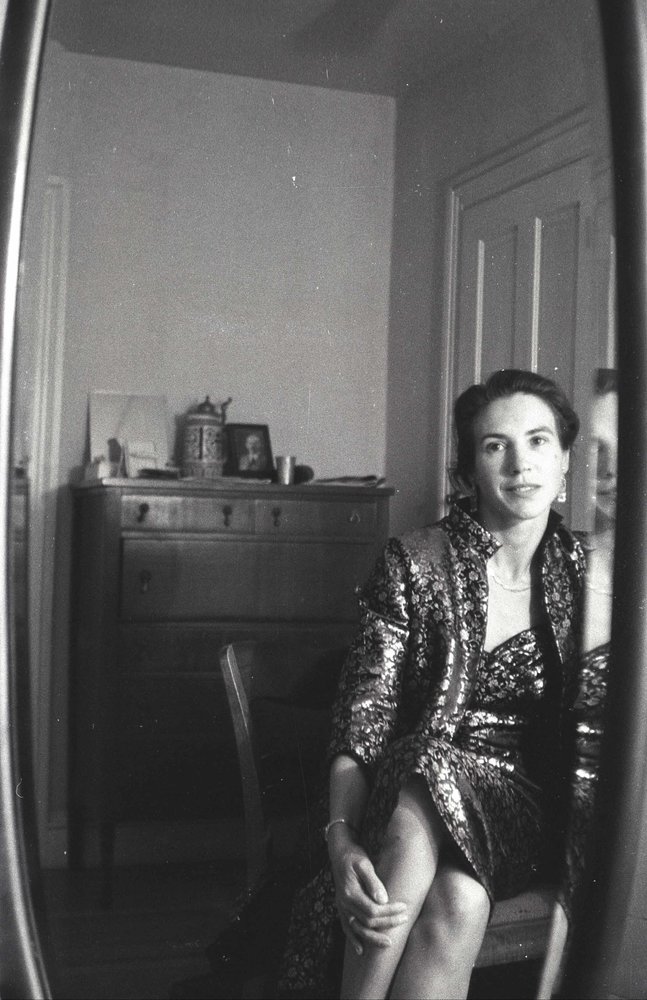Verena Huber-Dyson
May 06, 1923 - March 12, 2016
- Share:
Verena Huber-Dyson
May 06, 1923 - March 12, 2016
Obituary
VERENA HUBER-DYSON, a Swiss-American-Canadian mathematician known for her work in group theory, decision problems, and symbolic logic, was born in Naples, Italy on May 6, 1923, and died in Bellingham, Washington, USA on March 12, 2016. Her parents, Karl (Charles) Huber (1893—1946) and Berthy Ryffel (1899—1945), were Swiss nationals who raised Verena and her sister Adelheid (“Heidi,” 1925—1987) in Athens, Greece, where the children attended the German-speaking Deutsche Schule, until forced to return to Switzerland in 1940 by the war. Charles Huber, who had managed the Middle Eastern operations of Bühler AG, a Swiss food-process engineering firm, began working for the International Committee of the Red Cross (ICRC), monitoring the treatment of prisoners of war in internment camps. As the ICRC delegate to India and Ceylon, he was responsible for Italian prisoners held in British camps, but also visited German and Allied camps in Europe, and in 1945-46 served as an ICRC delegate to the United States, which he described to Verena as a place she “definitely ought to experience at length and in depth but just as definitely ought not to settle in.”
Verena’s own leanings toward engineering and the outdoors had been repressed by her mother’s social conventions and she turned to mathematics as a more acceptable escape. She could observe the requisite social appearances outwardly while playing with numbers, invisibly, in her head. She obtained her Ph.D in mathematics from the University of Zürich in 1947 with a thesis in finite group theory under Andreas Speiser, and sailed for America and a post-doctoral fellowship at the Institute for Advanced Study in Princeton, NJ, aboard the Holland-America liner Nieuw Amsterdam on January 1, 1948.
Verena married Hans-Georg Haefeli in 1942 and was divorced in 1948. Her first child, Katarina Haefeli (now Halm) was born in Zürich on April 18, 1945. She married Freeman Dyson in 1950 and was divorced in 1958. Their daughter Esther Dyson was born in Zürich on July 14, 1951, and their son George Dyson in Ithaca, NY on March 26, 1953.
Over her long and nomadic career, Verena held teaching and research positions at Cornell University, Goucher College, San Jose State University, Adelphi University, UCLA, University of London, ETH Zürich, Warwick University, University of Melbourne, Monash University, Australian National University in Canberra, University of Zürich, Mills College, and UC Berkeley (where she was a member of the Group in Logic and the Methodology of Science, and later the Mathematical Sciences Research Institute) and worked as a consultant for Remington Rand (Univac) in Philadelphia and Hughes Aircraft in Los Angeles. She obtained tenure as an associate professor in the Mathematics department of the University of Illinois in 1972, and from 1973 to 1988 was a tenured professor in the Philosophy department of the University of Calgary, Alberta, where she taught graduate courses on the foundations of mathematics and the philosophy and methodology of the sciences and began work on a monograph, Gödel’s theorems: a workbook on formalization, published by Teubner in 1991. Her personal and professional memoirs were left unfinished at her death.
Verena purchased a 1940 Dodge convertible shortly after her arrival in the United States and almost immediately fell in love with the American west, driving cross-country countless times. A lifetime mountaineer and a serious amateur photographer, she joined the Sierra Club in 1965, attending numerous Sierra Club base camps and high trips over the years, and later explored the Canadian Rockies with Calgary as a base. After her retirement she settled on South Pender Island in British Columbia and lived there for most of 14 years, refurbishing two waterfront properties, first at Gowland Point and later at Craddock Beach. She became an active kayaker, and made trips to Johnstone Strait, Glacier Bay, and Prince William Sound.
Verena Huber-Dyson is survived by her children Katarina Halm of Vancouver, BC, Esther Dyson of New York, NY, George Dyson of Bellingham WA, and grand-daughter Lauren Dyson, currently a graduate student at the University of Chicago. Although a champion of women’s rights (women did not gain the right to vote in Switzerland until 1971) Verena’s final instructions include the statement that “Women should not be encouraged to go into mathematics for any motive other than their own stubborn preference and curiosity.” Memorials, if any, should go the Whatcom Hospice Foundation in support of the Whatcom Hospice House, where she spent the last 12 days of her life. Her last words were “This will all go smoothly. Let’s get going.”

3 responses to Verena Huber-Dyson
Karl Pfeifer says:
March 12, 2016
Verena was one of my teachers and a good friend. I remember one particular instance of her astonishing brilliance. A fellow grad student had spent fruitless hours trying to puzzle out how a certain result was supposed to follow from a certain mathematical formula. Verena glanced at it for 2 seconds and said, “Oh. You just have to integrate. Twice.”
Unfortunately I only managed to see Verena a few times after I left Calgary to take up a position in Saskatoon and that was all too briefly when I was in Vancouver for conferences. My condolences to all.
Tony Hetman says:
March 12, 2016
In the early 70’s I had the privilege of taking a course on Leibniz from Verena. She informed our small class of about 5 that she didn’t know much about Leibniz but together we will learn. I took that statement about life in general and carry it with me to this day. We really don’t know that much about life but together we can learn.
Steve Kilistoff says:
March 12, 2016
I was not anywhere near her best student, but Verena responded to my curiosity and enthusiasm with kindness and patience. The mathematical rigour she imparted to me is what I use to make the world a better place – as best I can – and so Verena, you live on.